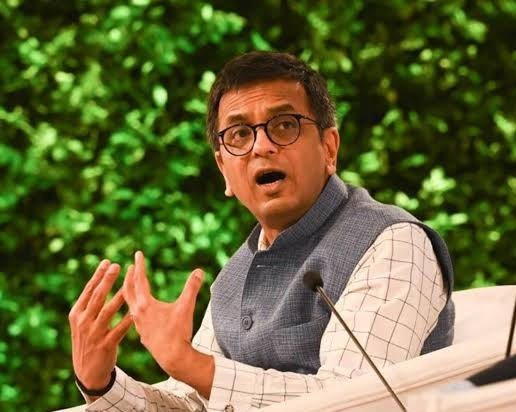Arbitration and it's Future in India : CJI's Addresses a lecture In UK
- M.R Mishra

- Jun 8, 2024
- 2 min read
Chief Justice of India, D.Y. Chandrachud, has stated that arbitration is no longer merely an “alternative” but is now the preferred method for seeking commercial justice, offering a level playing field outside domestic courts.
The Width of our jurisdiction was designed to ensure widest access to justice . But surely, every case need not find a remedy in court, with emerging forms of dispute. Resolution such as arbitration and mediation gaining acceptance
Says , CJI.DY Chandrachud
Addressing the Supreme Court of the United Kingdom, he noted that the principles of a liberal democracy enshrined in the Indian Constitution allow individuals to seek tailored solutions to legal issues outside the judicial system, provided these solutions adhere to established law.

During his lecture on 'Laws and Practice of Commercial Arbitration: Shared Understandings and Developments in the UK and India,' delivered on Thursday, the CJI highlighted that despite the Indian High Courts resolving 2.15 million cases and District Courts resolving 44.70 million cases in 2023, the courts remain overburdened.
These figures reflect the trust that the Indian populace places in its judiciary.
However, there is a growing trend for parties to move away from domestic court systems, opting instead for neutral, third-party arbitrators to settle disputes.
"Our judiciary operates on the principle that no case is too small or too large. Every person seeking justice is entitled to a fair remedy. In addressing these grievances, Indian courts fulfil their constitutional duty. The broad scope of our jurisdiction ensures wide access to justice. Yet, not every case needs to be resolved in court, with arbitration and mediation gaining traction as alternative dispute resolution methods," he stated.
He emphasized that arbitral institutions should be transparent, accountable, technologically advanced, and inclusive, promoting diversity in terms of gender and regional representation to ensure a comprehensive process.
"Recently, institutions such as the India International Arbitration Centre, along with centres in Mumbai and Delhi, have been established and are seeing a steady increase in arbitration cases. However, merely creating institutions is not enough. These institutions must avoid being dominated by a self-perpetuating elite and instead be grounded in strong professionalism and the capacity to deliver consistent arbitration processes," he said.
Arbitration is a form of alternative dispute resolution (ADR) where disputes are settled outside the courts by one or more arbitrators, whose decision is binding. It is often used for commercial disputes and is designed to be a quicker and more flexible process than traditional court proceedings.
Conclusion
Arbitration in India is governed by a comprehensive legal framework that aims to provide a fair, efficient, and binding resolution to disputes. The system is continually evolving to meet international standards and to address the needs of the parties involved in commercial transactions.
Thanks For visiting!!






Comments